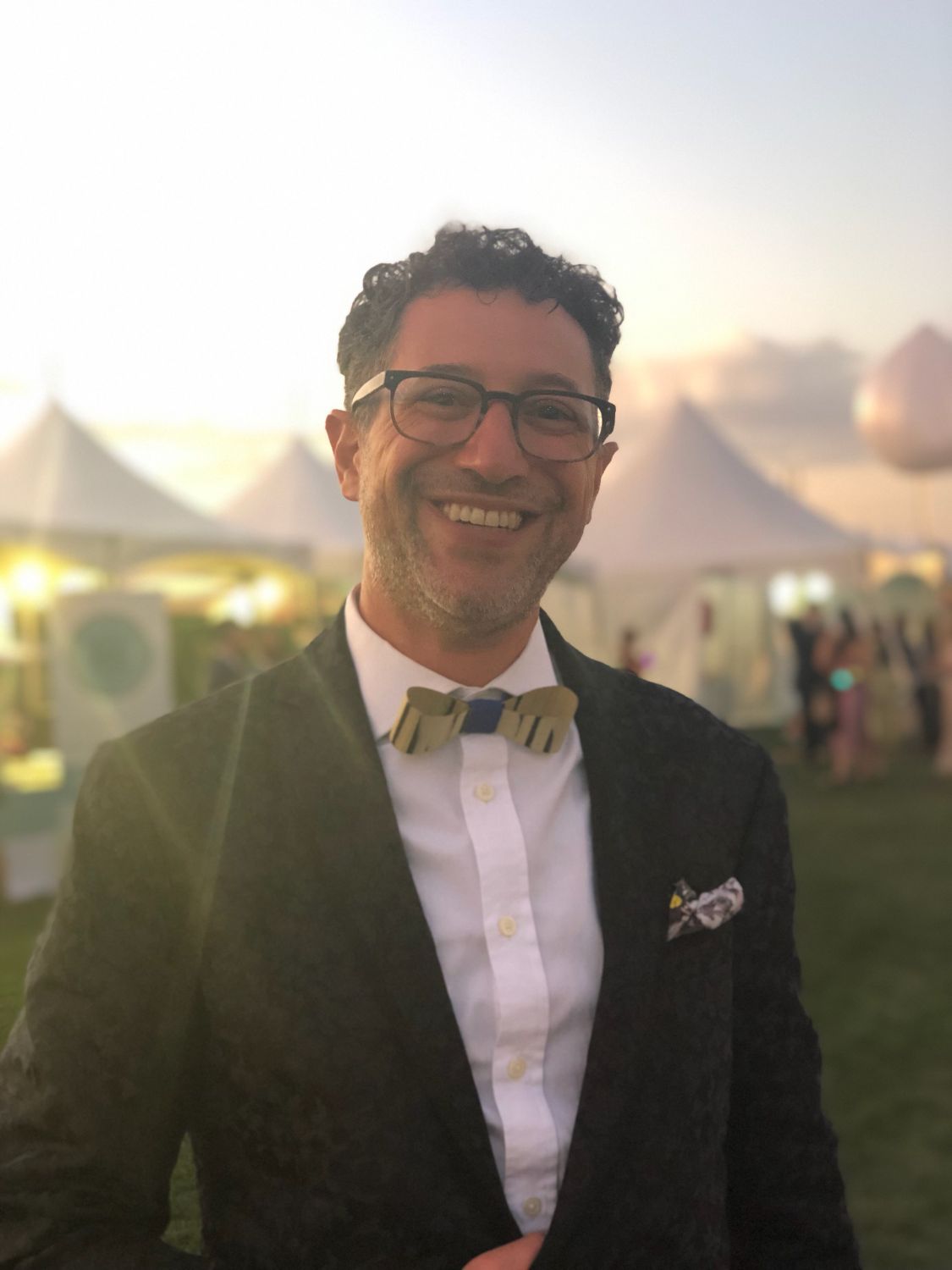Creating microcredentials with trust and human-centered design
 For Noah Geisel, Microcredentials Program Manager at the University of Colorado Boulder, joining ASU’s Trusted Learner Network (TLN) Governing Body Committee was a no brainer. While he admits that he didn’t know what he was getting into, he quickly said “yes” because of the people involved in the TLN. “These were people from around the country who I respect and admire and like,” said Geisel. “If these awesome humans are part of this and are extending a hand and offering to pull me in for the ride with them, then I’ll ask questions and find out what it’s all about later.”
For Noah Geisel, Microcredentials Program Manager at the University of Colorado Boulder, joining ASU’s Trusted Learner Network (TLN) Governing Body Committee was a no brainer. While he admits that he didn’t know what he was getting into, he quickly said “yes” because of the people involved in the TLN. “These were people from around the country who I respect and admire and like,” said Geisel. “If these awesome humans are part of this and are extending a hand and offering to pull me in for the ride with them, then I’ll ask questions and find out what it’s all about later.”
Flash forward almost six months and Geisel continues to bring a unique perspective to TLN. With a background in K-12, independent consulting work in digital badges and credentials, Geisel is now working at an institution where digital credentials are housed within the Office of the Registrar.
“The role of the registrar for hundreds of years has been trust,” said Geisel. “At the end of the day, they want to make sure that information on the academic record is worthy of the institutional brand and is accurate. If we don’t have trust in the transcript and the academic records, everything falls apart at the institutional level.”
Highlighting data and credentials that is learner-centric
Geisel first became interested in digital credentials when he saw a push, especially in public education, for data-informed decision making. But he didn’t feel that what was actually important to learners and earners was showcased in a meaningful way. “That was my entrance into this space: Let’s look for data that actually matters, and then share it in ways that are trusted and verifiable,” said Geisel. “Entering into a large, R1 public university and getting to see the world of the Registrar really made sense and clicked. I work for a visionary leader who saw this opportunity and made a really smart move to say that microcredentials belong in our shop. I’m really grateful for it.” (R1 universities meet the highest research benchmarks measured by the Carnegie Classification of Institutions of Higher Education. Arizona State University is also an R1 research institution.)
Geisel explained that it's important for people to be on the same page on the definitions of what a digital credential is, and know that microcredentials are available to support learners and foster their innovation. “Microcredential can mean different things to different people,” said Geisel. “Digital credential and digital badge could be used interchangeably or could be something distinct. There are gaps in our meaning making that are probably causing slow downs in this space that are due to just not taking a moment to ask clarifying questions.”
When it comes to a complex topic like microcredentials, Geisel focuses on putting people first. “I’m a big believer in human-centered design. I think it’s important to listen, to empathize and to validate assumptions to established shared meaning. When we’re dealing with ideas that are conceptually abstract, let's make sure we’re combining words with pictures, getting up and pointing at those pictures and talking, to make sure that if we are all nodding along and that we’re actually meaning the same thing because, a lot of times, we’re not,” said Geisel.
How microcredentials and the TLN can make a difference
Geisel is also a true believer in the power of microcredentials, and how they can bring equality to learners and earners — especially those who haven’t benefited from the current system. “There’s a monumental opportunity here that doesn’t come along often to change things and to help improve our systems to be systems that help all learners, not just the learners for whom we’ve already been doing a great job,” said Geisel. “That’s really powerful.”
He explained that microcredentials have the potential to “change the world” because of the people who support it and are driving innovation to create better opportunities and outcomes for students — both on the vendor side and the practitioner side. That includes the TLN.
Geisel appreciates that the TLN is an open, inclusive place for all to gather to be part of the evolution of digital credentials. “That fills my cup and fuels my inspiration of what can be done on my own campus,” said Geisel. “I have an opportunity to represent CU Boulder in this larger national effort. I can reliably go back and tell my stakeholders on campus that we’re serving other R1s like ourselves, but we’re also serving community colleges and Hispanic Serving Institutions (HSIs) and all these other stakeholders. We’re a part of a bigger and more complete whole.”